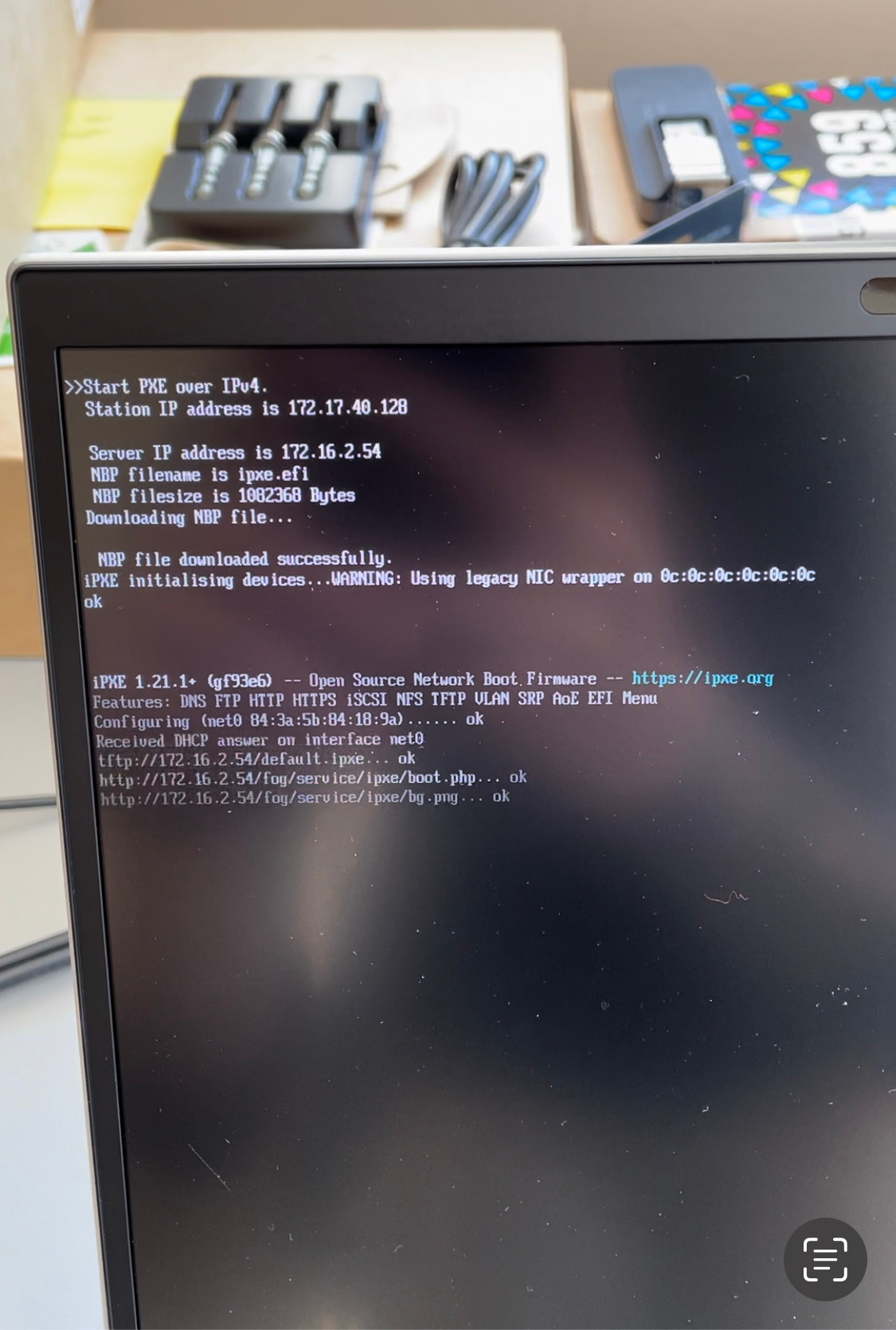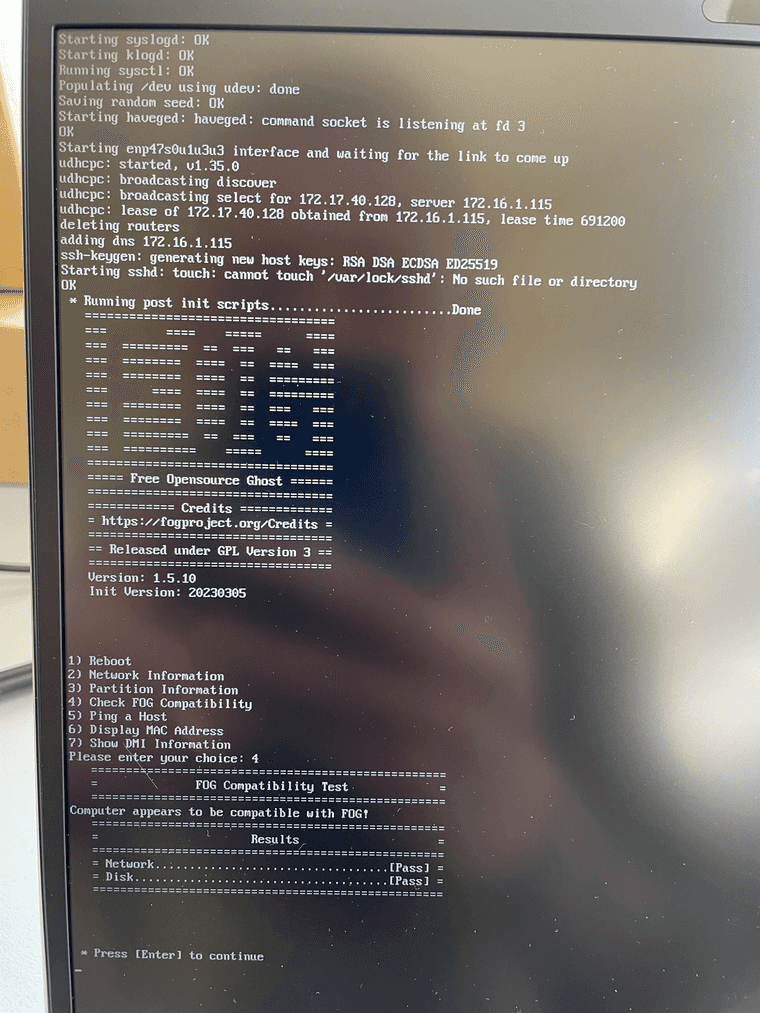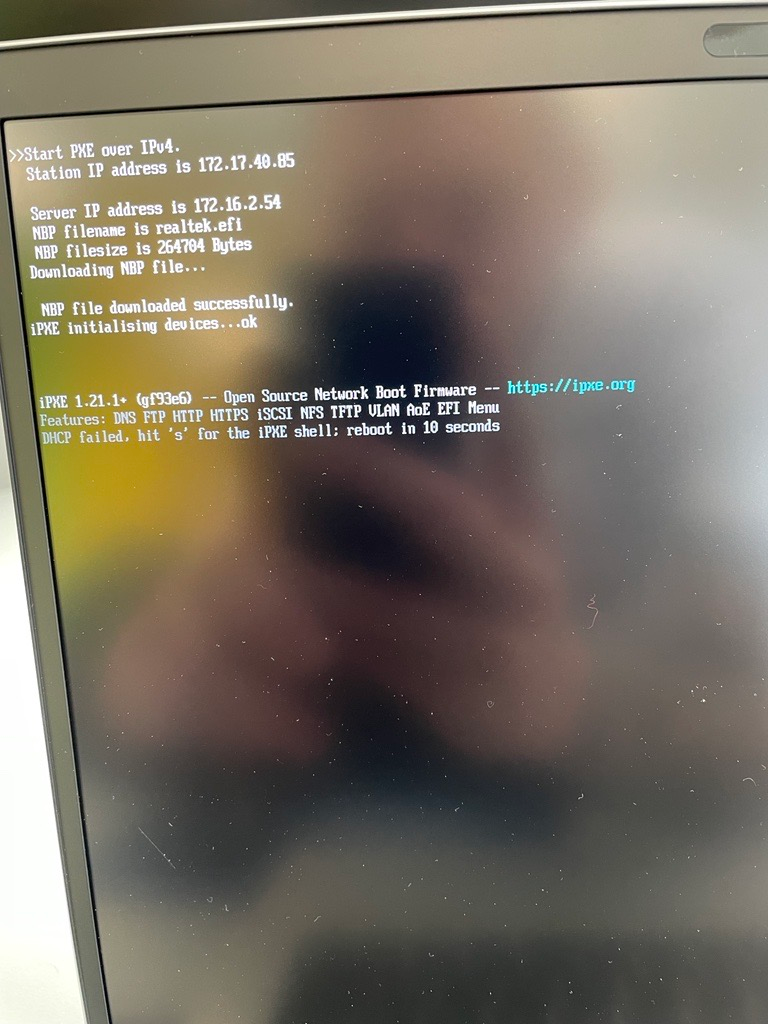FOG can't deploy image to HP EliteBook
-
We are running into issues getting the HP Elitebooks to image from Fog. A couple of steps that we have done:
*Updated the Kernal to 6.1.22
*Updated ipxe to 1.21.1
*Updated Fog to Version: 1.5.10
*Disabled Mac Address Passthrough and Secure Boot in BiosWe do not experience these issues with the other HP models that we use, just the Elitebooks.


Thanks!
-
-
Hi,
I have the same problem with an HP Probook 450 Gen 9.
To work around the problem, I have to register the machine and then deploy from the web interface.For information, I can’t get snponly.efi to work on this kind of machine, I get stuck at bzimages at 46% during migration.
I have to use ipxe.efi. -
I just tried with the following binary: realtek.efi and it works perfectly.
-
@Yazur Ill switch over to the realtek.efi binary and see how that does. Thanks!
-
@Yazur I just performed the test with the realtek.efi binary set as 067 within our DHCP server settings. When we try to boot to ipv4, we receive a DHCP Failed error. The screenshot is attached.

Thanks,
-
-
S Sebastian Roth marked this topic as a question on
-
S Sebastian Roth has marked this topic as solved on
-
@mmello Hi, Where do you replace with snponly.efi ?
Have same problem with HP Elitebook 650 G10.
We use this DHCP option 60 :class "UEFI-32-1" { match if substring(option vendor-class-identifier, 0, 20) = "PXEClient:Arch:00006"; filename "i386-efi/ipxe.efi"; } class "UEFI-32-2" { match if substring(option vendor-class-identifier, 0, 20) = "PXEClient:Arch:00002"; filename "i386-efi/ipxe.efi"; } class "UEFI-64-1" { match if substring(option vendor-class-identifier, 0, 20) = "PXEClient:Arch:00007"; filename "ipxe.efi"; } class "UEFI-64-2" { match if substring(option vendor-class-identifier, 0, 20) = "PXEClient:Arch:00008"; filename "ipxe.efi"; } class "UEFI-64-3" { match if substring(option vendor-class-identifier, 0, 20) = "PXEClient:Arch:00009"; filename "ipxe.efi"; } class "Legacy" { match if substring(option vendor-class-identifier, 0, 20) = "PXEClient:Arch:00000"; filename "undionly.kpxe"; } -
@Florent for the 64 bit versions of uefi, you would replace ipxe.efi with snp.efi or snponly.efi in the config file and then restart the dns server.
The difference between snp.efi and snponly.efi is that the snponly.efi will only init the network interface where the snponly.efi was downloaded from, where the snp.efi will init (and try to boot from) all interfaces in the target computer.